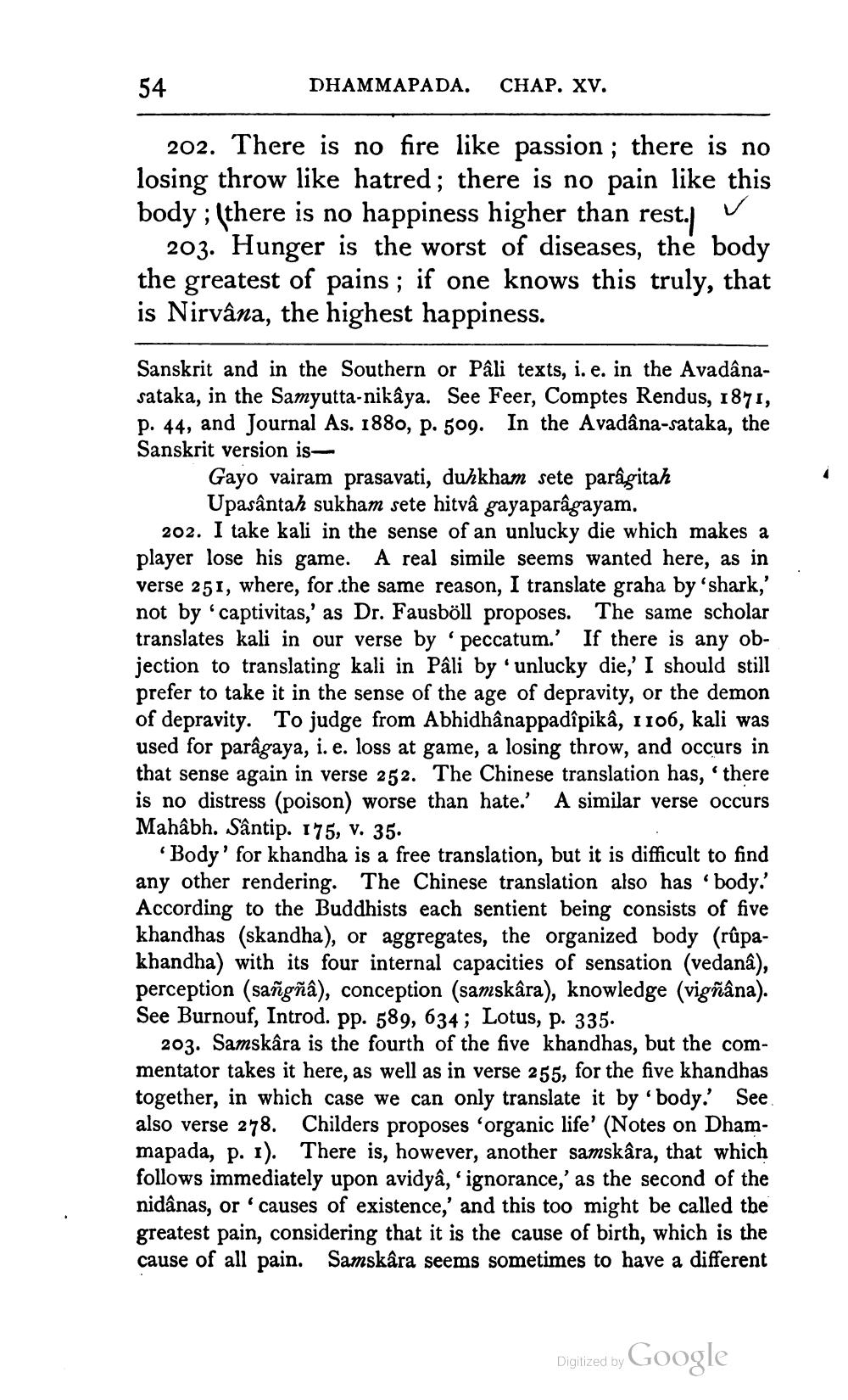________________
DHAMMAPADA. CHAP. XV.
202. There is no fire like passion ; there is no losing throw like hatred; there is no pain like this body ; (there is no happiness higher than rest. V
203. Hunger is the worst of diseases, the body the greatest of pains ; if one knows this truly, that is Nirvana, the highest happiness.
Sanskrit and in the Southern or Pâli texts, i. e. in the Avadânasataka, in the Samyutta-nikâya. See Feer, Comptes Rendus, 1871, p. 44, and Journal As. 1880, p. 509. In the Avadâna-sataka, the Sanskrit version is
Gayo vairam prasavati, duhkham sete parâgitah
Upasântah sukham sete hitvâ gayaparâgayam. 202. I take kali in the sense of an unlucky die which makes a player lose his game. A real simile seems wanted here, as in verse 251, where, for the same reason, I translate graha by shark,' not by 'captivitas,' as Dr. Fausböll proposes. The same scholar translates kali in our verse by peccatum.' If there is any objection to translating kali in Pâli by unlucky die,' I should still prefer to take it in the sense of the age of depravity, or the demon of depravity. To judge from Abhidhânappadîpikâ, 1106, kali was used for parâgaya, i.e. loss at game, a losing throw, and occurs in that sense again in verse 252. The Chinese translation has, 'there is no distress (poison) worse than hate.' A similar verse occurs Mahâbh. Sântip. 175, v. 35.
Body' for khandha is a free translation, but it is difficult to find any other rendering. The Chinese translation also has .body.' According to the Buddhists each sentient being consists of five khandhas (skandha), or aggregates, the organized body (rûpakhandha) with its four internal capacities of sensation (vedana), perception (sañgña), conception (samskâra), knowledge (vigñâna). See Burnouf, Introd. pp. 589, 634; Lotus, p. 335.
203. Samskâra is the fourth of the five khandhas, but the commentator takes it here, as well as in verse 255, for the five khandhas together, in which case we can only translate it by 'body. See also verse 278. Childers proposes 'organic life' (Notes on Dhammapada, p. 1). There is, however, another samskâra, that which follows immediately upon avidya, 'ignorance,' as the second of the nidanas, or causes of existence,' and this too might be called the greatest pain, considering that it is the cause of birth, which is the cause of all pain. Samskâra seems sometimes to have a different
Digitized by Google




